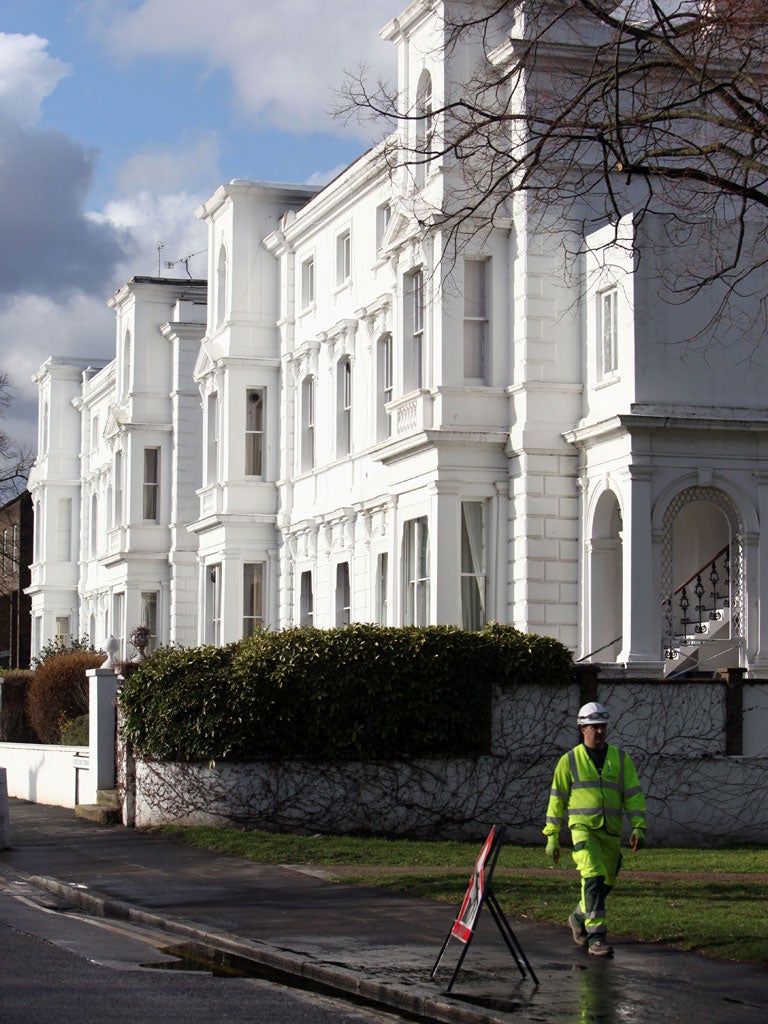Tories prepare for battle against Lib Dem plans for mansion tax
Owners face bills of £36,000 but Treasury figures suggest shortfall of £2m-plus properties

Your support helps us to tell the story
From reproductive rights to climate change to Big Tech, The Independent is on the ground when the story is developing. Whether it's investigating the financials of Elon Musk's pro-Trump PAC or producing our latest documentary, 'The A Word', which shines a light on the American women fighting for reproductive rights, we know how important it is to parse out the facts from the messaging.
At such a critical moment in US history, we need reporters on the ground. Your donation allows us to keep sending journalists to speak to both sides of the story.
The Independent is trusted by Americans across the entire political spectrum. And unlike many other quality news outlets, we choose not to lock Americans out of our reporting and analysis with paywalls. We believe quality journalism should be available to everyone, paid for by those who can afford it.
Your support makes all the difference.The Conservatives are preparing an aggressive counterattack against Labour and Liberal Democrats plans for a “mansion tax”, after new Treasury calculations found that wealthy householders would face an average annual demand of more than £35,000.
In a foretaste of a key battle at the 2015 election, the Tories claimed the scheme is fatally flawed and will raise far less cash than envisaged unless the richest homeowners are charged astronomical sums.
Under a flagship Lib Dem plan, a tax of one per cent would be levied on the value of properties above £2m, with the owner of a house worth £2.5m paying £5,000 a year, while a £5m property would face a £30,000 bill. The party says the levy will raise up to £2bn a year, which would be used to cut taxes at the bottom end of the income scale.
Labour adopted the policy this year, saying the revenue raised would be used to restore the 10p bottom rate of tax abolished by the previous Labour Government. It also believes that the levy on Britain’s most expensive houses –overwhelmingly in London and the South East – could raise about £2bn.
However, a Tory minister disclosed on Sunday that research by the Treasury has established there are 55,000 homes worth more than £2m in Britain, far fewer than the 70,000 – 75,000 figure cited by Labour and the Lib Dems.
David Gauke, the Exchequer Secretary to the Treasury, said: “We’ve got the finest minds in the Treasury working on this and they have divided £2bn by £55,000 – it does not require a huge amount of work – and you end up with an average of £36,000 a year as the annual levy.” This is the first estimate of the scheme’s impact.
Senior Tories believe a mansion tax would require houses to be revalued to see whether they were liable, which would prove costly and time-consuming. They it would be a complex, intrusive, homes tax which could penalise pensioners who have lived in a property for a long time, saved up and improved it.
A Tory source said: "The Labour position is utterly confused and, not for the first time, its sums don't add up.” Tory officials stressed they were not against the wealthy paying their fair share, pointing out that the Chancellor George Osborne had increased stamp duty on the most expensive properties.
Labour has not yet disclose how much mansion tax would raise, or whether it would apply to on full value of the property or only the amount above £2m. A Labour source said on Sunday: "In central London the majority of multi-million pound properties are now being bought by overseas buyers. After cutting income tax for millionaires the Tories now seem determined to defend the interests of wealthy Russians who buy up houses in London but pay little tax. Labour would use the funds raised from a mansion tax to help ease the squeeze on millions of families on middle and low incomes with a 10p starting rate of tax. This is a debate we will relish over the coming years."
The policy has proved a key point of difference between the Coalition partners, although at one point Mr Osborne was more sympathetic to the idea than David Cameron. Some Lib Dems suggest a mansion tax could be a non-negotiable “red line” in talks with the Tories if the 2015 election resulted in another hung parliament.
A senior Lib Dem shrugged off the Tory attack. “We would be absolutely delighted to have a political debate about the policy,” he said. “The Conservatives are trying to appeal to around 500 of their wealthy donors. We are trying to appeal to the entire electorate – this is an incredibly popular policy.”
He stood by the Lib Dems’ estimate of the number of £2m-plus houses in Britain. He also said the Tories’ calculation of the average levy was misleading as most people caught by the tax would pay relatively small amounts while a limited number of the super-rich would be liable for large payments.
Ed Miliband announced Labour’s support for the mansion tax in February, saying the income scale of its promised new 10p tax rate would depend on the amount of money raised.
Join our commenting forum
Join thought-provoking conversations, follow other Independent readers and see their replies
Comments